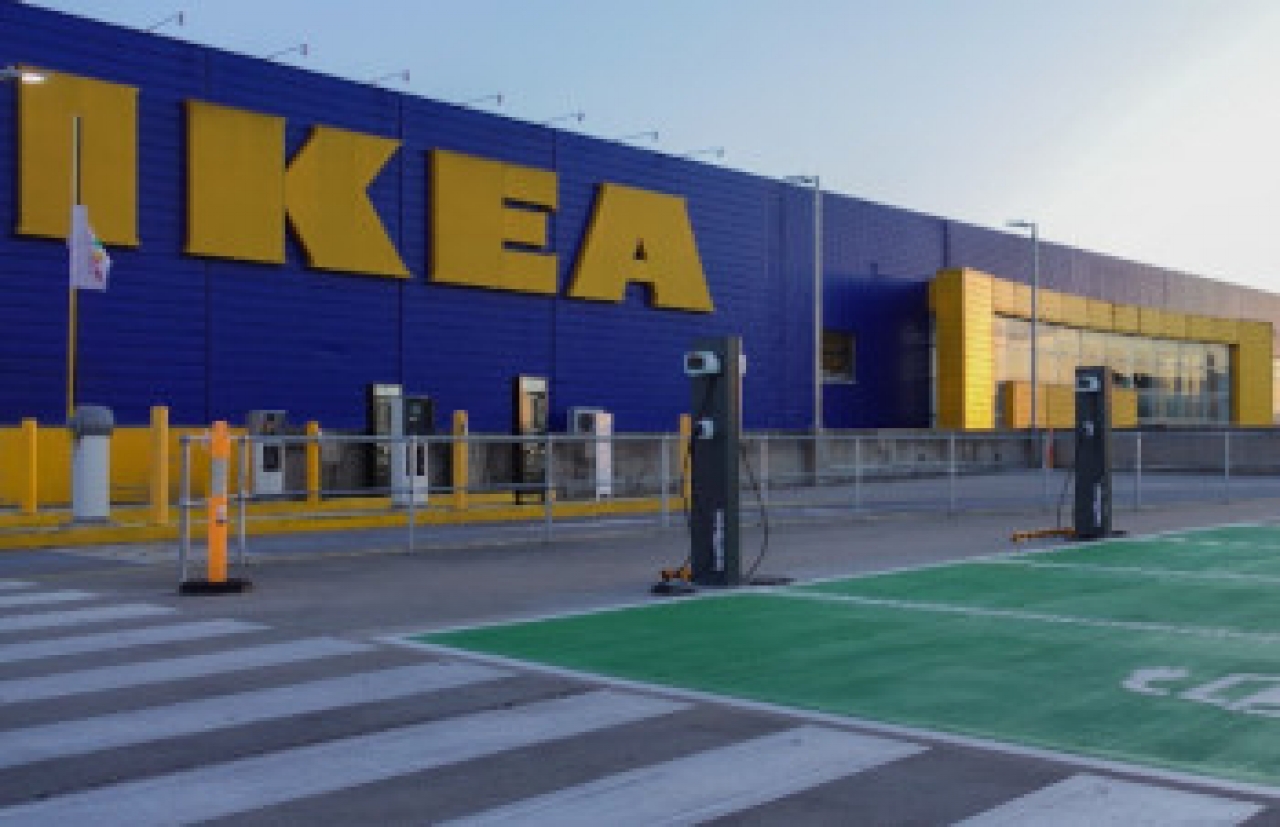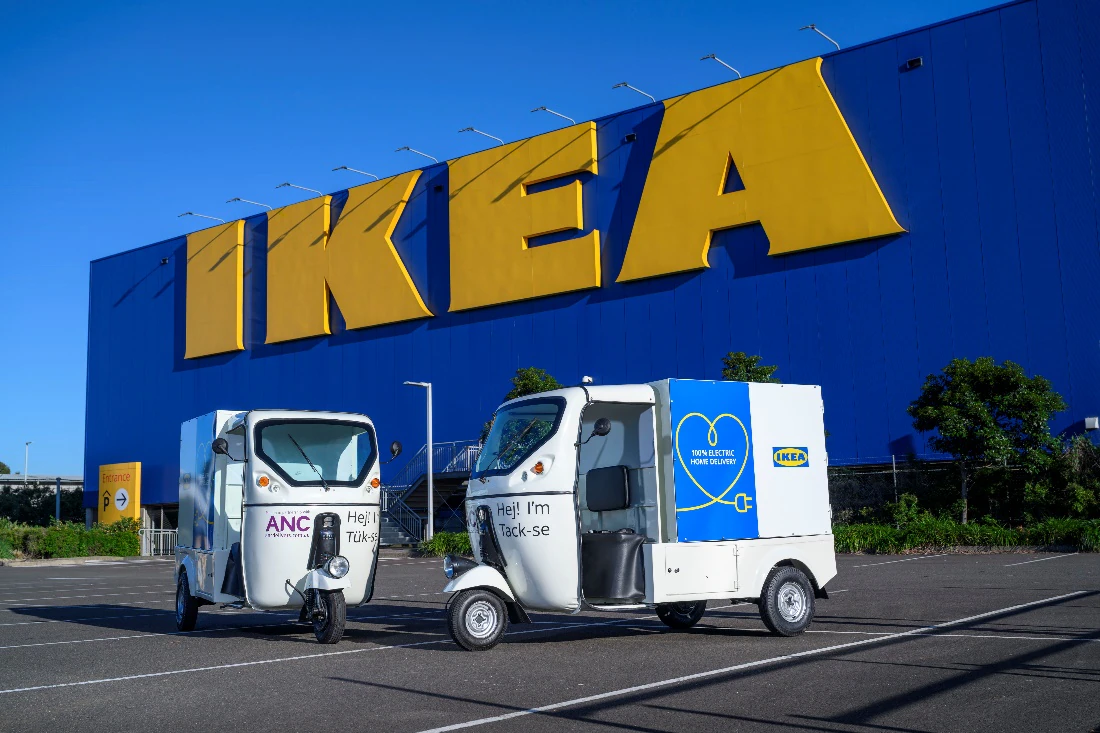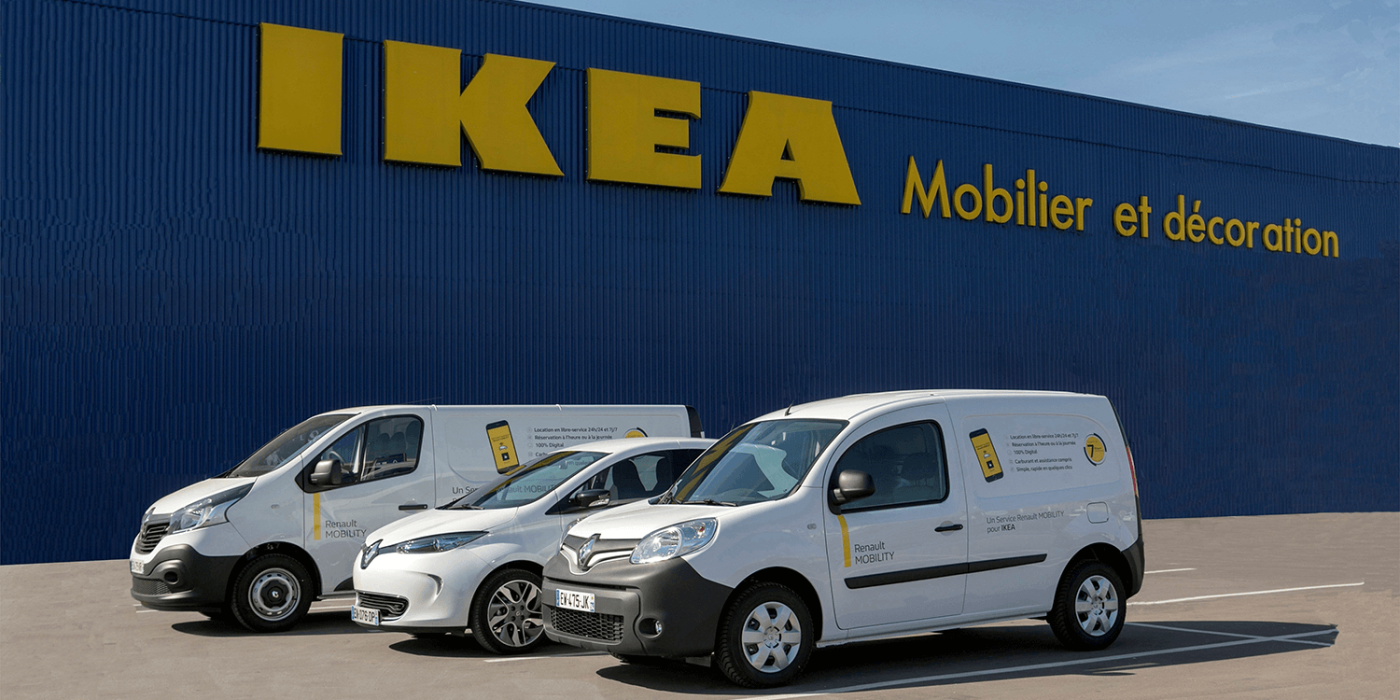IKEA, the world-renowned furniture giant, is making headlines again, but this time it’s not just for its innovative flat-pack furniture. The Swedish powerhouse has announced a substantial investment of approximately $4.5 million to bolster its green initiatives across Australia. This move is part of a broader strategy to integrate more sustainable practices into its operations, signaling IKEA’s commitment to environmental stewardship and innovative customer service solutions.

Expanding EV Charging Infrastructure Across Retail Locations
In a significant push towards eco-friendly operations, IKEA Australia is set to install additional electric vehicle (EV) charging stations at 10 of its retail locations. These stations will be strategically placed across several key regions, including Adelaide, Canberra, and Perth, as well as in Victoria at the Richmond and Springvale stores.
The expansion doesn’t stop there. New South Wales will see installations at three IKEA stores located in Tempe, Rhodes, and Marsden Park, complementing the installations at the Queensland stores in North Lakes and Logan. This initiative not only enhances IKEA’s service offering but also supports the Australian government’s New Vehicle Efficiency Standard (NVES), which aims to reduce greenhouse gas emissions significantly by 2025.
Ikea aims to drive EV uptake with nationwide charging network: The Australian arm of Swedish furniture giant Ikea will partner with Melbourne-based electric vehicle charging infrastructure company Jet Charge to… https://t.co/OtX7ms4aiU #renewables #australia #technology pic.twitter.com/s8LJsqKSIG
— pv magazine Australia (@pvmagazineoz) May 28, 2024
Exclusive Charging Stations for a Sustainable Delivery Fleet
One of the notable aspects of IKEA’s new infrastructure is the development of a charging station at its Central Distribution Center in Sydney. This facility will be capable of charging up to 28 EVs but will be exclusively accessible to IKEA’s delivery fleet, not the general public. This approach ensures that IKEA’s commitment to sustainability extends beyond customer-facing solutions to its internal operations, particularly its logistics and delivery services.

Technological Edge with Jet Charge
To ensure the project’s success, IKEA has partnered with Jet Charge, a leader in EV charging technology. The proposed charging units are a mix of AC chargers, designed for overnight charging with outputs of 20kW and 22kW, and more robust DC chargers that offer rapid charging options with 75kW and 150kW outputs. This blend of technology will provide flexible charging solutions that cater to various operational needs, from slow overnight charges to rapid top-ups during shorter stops.
Broader Environmental Goals
This investment in EV charging stations is just one facet of IKEA’s comprehensive plan to enhance its sustainability. The company has also been actively working on installing solar car parks and expanding rooftop solar installations, alongside implementing cutting-edge battery energy storage systems. These initiatives are not only about reducing carbon footprints but also about setting a benchmark in the retail sector for environmental responsibility.
Impact on Local Automotive Industry and Consumer Choices
The broader implications of IKEA’s initiative are significant, with effects rippling through the automotive industry. As electric vehicles gain popularity in Australia, bolstered by government policies like the NVES, companies like Volkswagen Australia are reevaluating their strategies. Ralph Beckmann, the marketing manager for Volkswagen passenger vehicles, noted that the NVES has prompted a reassessment of plug-in hybrid electric vehicle (PHEV) models in the Australian market. This shift is indicative of a larger trend where automotive brands are increasingly pressured to offer more environmentally friendly vehicle options.

IKEA’s Green Commitment in Australia
IKEA’s latest investment in EV charging infrastructure is a clear indication of the company’s foresight and commitment to sustainability. By enhancing its green credentials and aligning with national environmental goals, the company is not just leading by example in the retail sector but is also playing a pivotal role in the transition towards a more sustainable future in Australia. This strategic move is expected to not only benefit its operational efficiency but also contribute positively to the environmental landscape of the regions it operates in.










